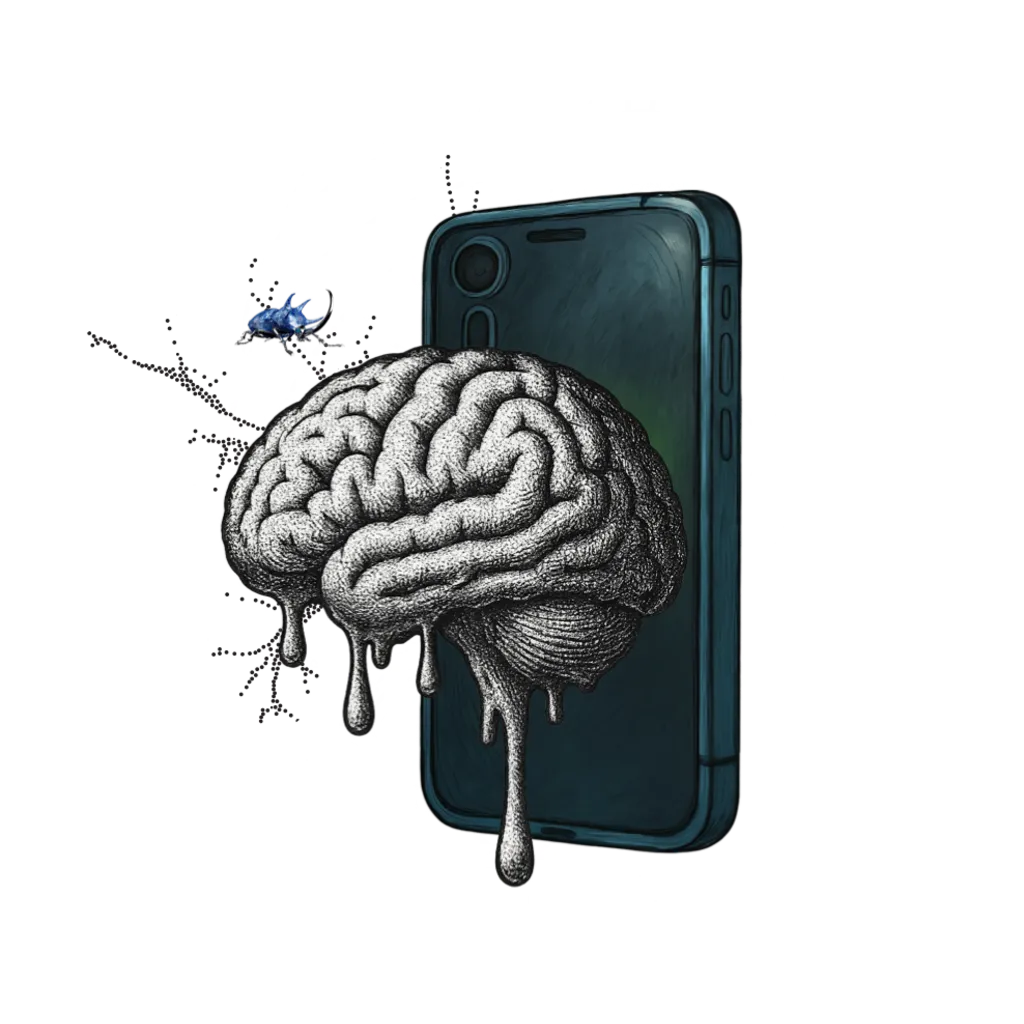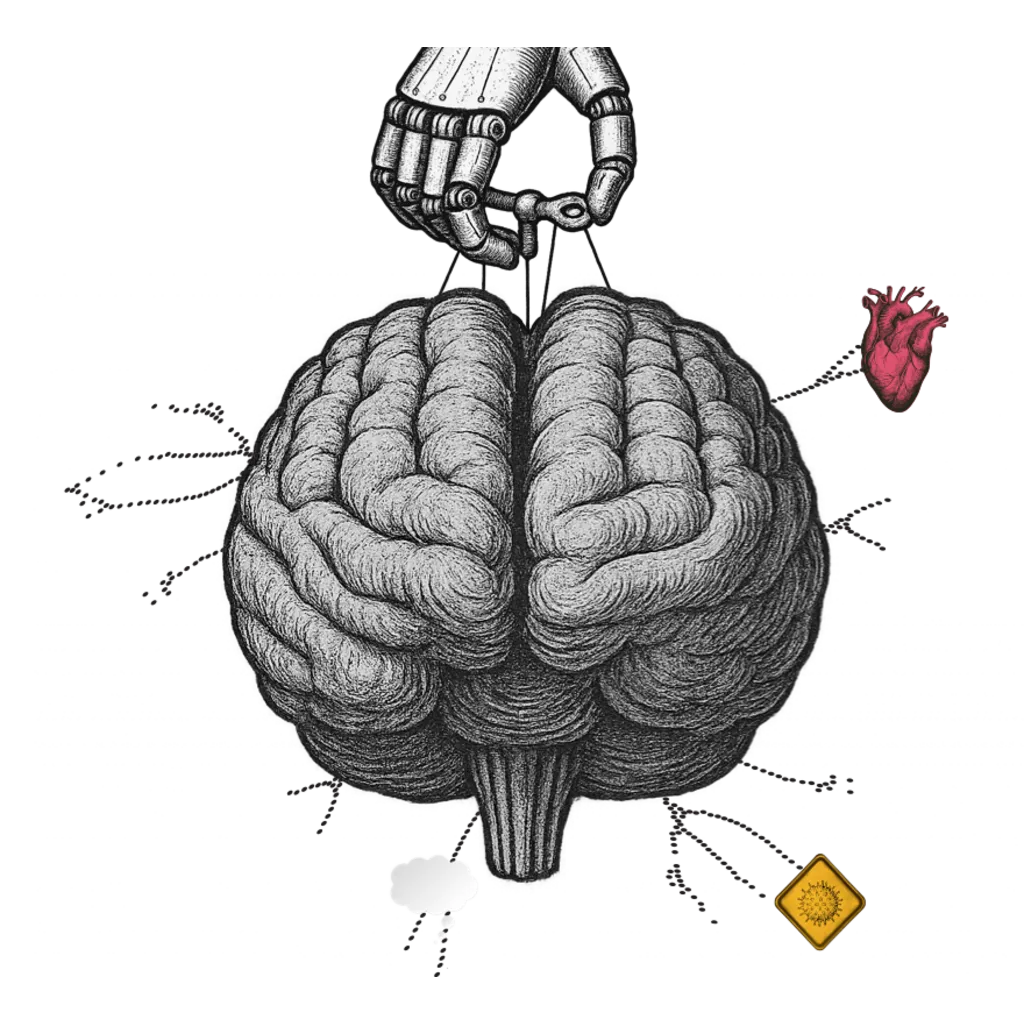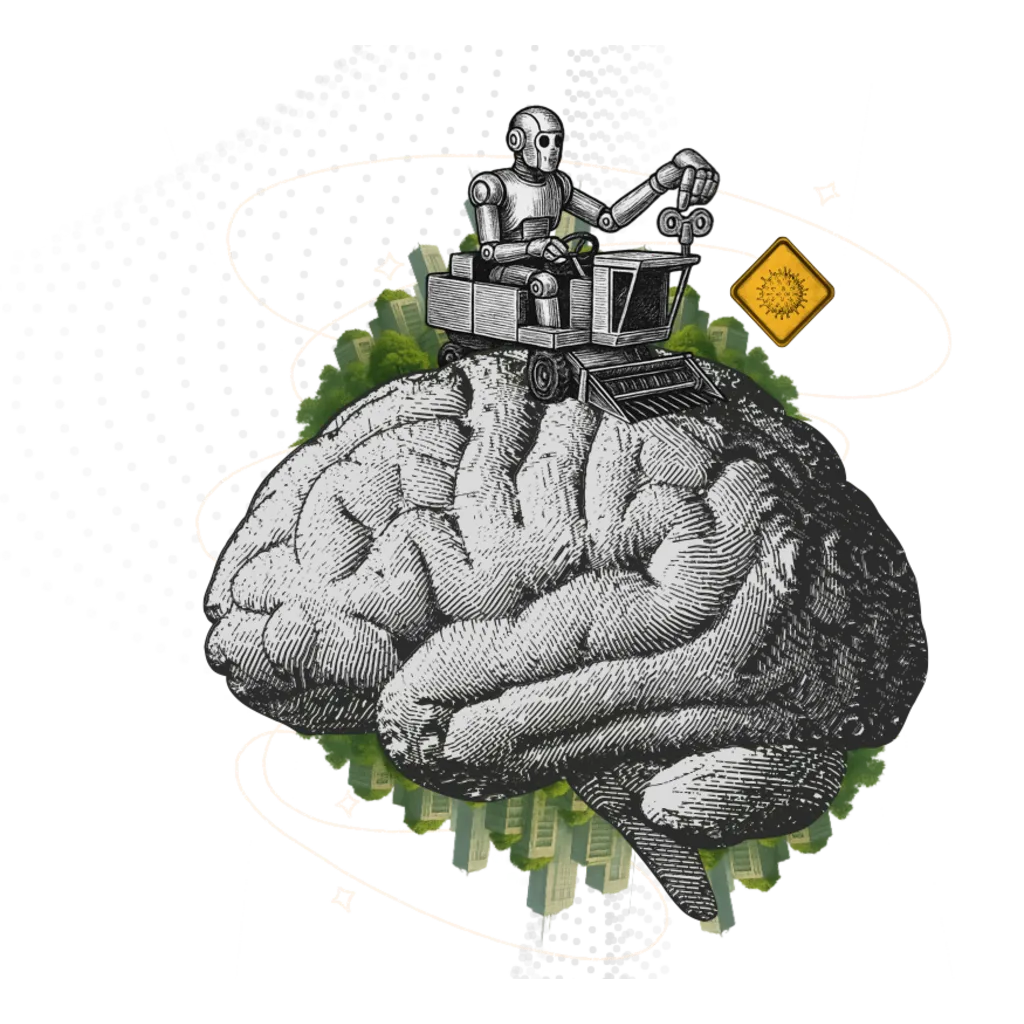From the confinement of science fiction pages to our daily routines, artificial intelligence has ceased to be an imagined scenario to become an invisible presence—suggesting what to watch, completing our sentences, anticipating our desires.
Little by little, we externalize cognition and traverse the intimate space of the mind—memory, thought, and imagination.
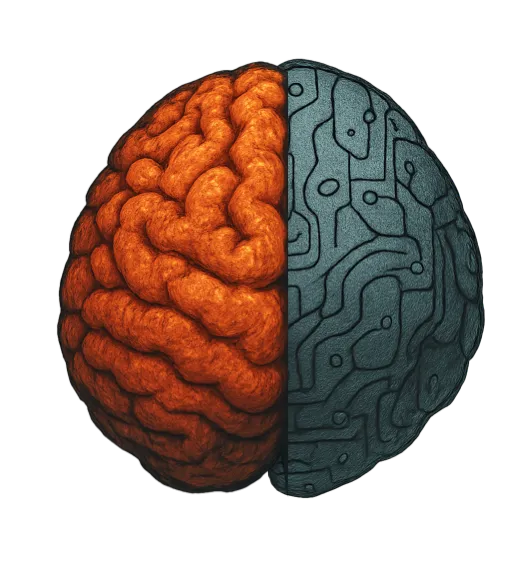
With every click, we delegate more—attention, memory, decision-making. The promise was cognitive emancipation, but we face the risk of thought automation due to the numbness of hyper-convenience.
Between the expanded mind and the atrophied mind, the dilemma is not to choose a side, but to find the balance between power and dependence.
About the Study
An initiative by White Rabbit, built in partnership with dozens of experts and opinion leaders (and yes, with AI assistance!), seeking to define, clarify and expand the notion of civilizational risks in the era of artificial intelligence.
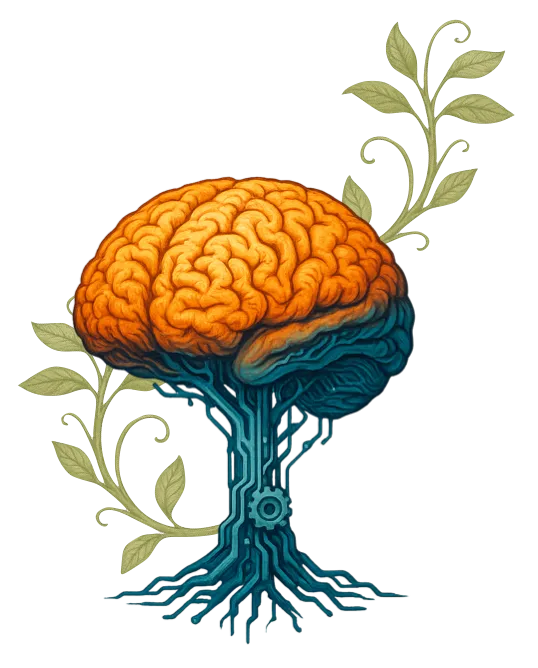

What is at stake?
How do we preserve the freedom of the mind when the very gears of thought begin to choreograph with algorithms?
Between the threats of mental erosion and the possibilities of creative expansion, Cognitive Sovereignty proposes a new perspective:
To see the mind not as an individual territory, but as a collective value and right.
Cognitive sovereignty is freedom over our attention, memory, our senses, our emotions, our decisions, and our imagination. Seeing the mind not as an individual territory, but as a collective value and right.
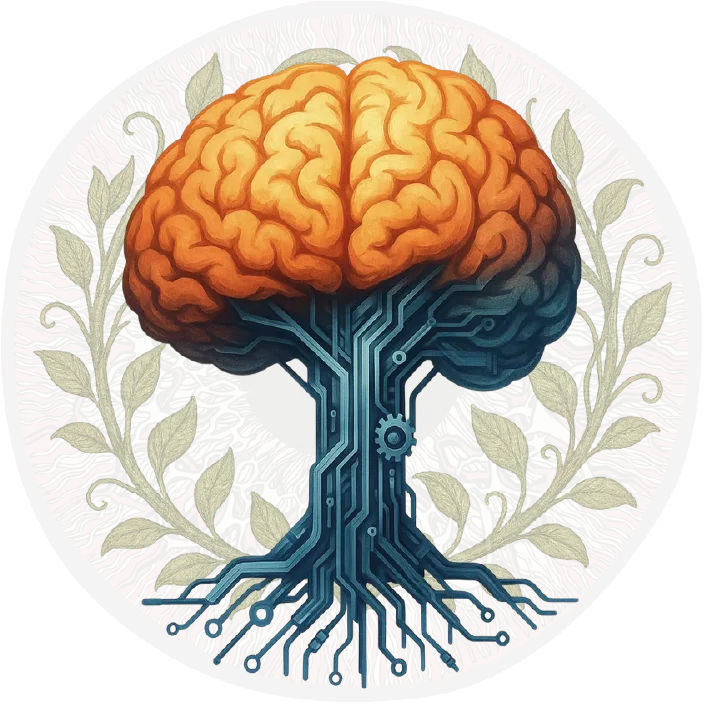
Questions Guiding This Study
Fundamental questions that guide our research
Who can still think freely?
How to prevent the erasure of knowledge?
What remains of affective relationships?
Who defines what intelligence is?
Who decides what is truth?
How to protect our brain's plasticity?
Who can still think freely?
How to prevent the erasure of knowledge?
What remains of affective relationships?
Who defines what intelligence is?
Who decides what is truth?
How to protect our brain's plasticity?
Explore the Study
Discover the different facets of cognitive sovereignty in the age of AI
Cognitive Atrophy
How dependence on AI systems is weakening our fundamental cognitive capabilities
Synthetic Intimacy
The illusion of human connection mediated by artificial systems
Algorithmic Neocolonialism
How AI perpetuates and amplifies structures of global domination
Invisible Design
The hidden architecture that shapes our thoughts and behaviors
Extractivism of the Mind
The systematic extraction of cognitive and emotional data as an economic resource
Erosion of Reality
How algorithmic mediation fragments our shared perception of the world
"Cognitive sovereignty represents a civilizational risk, because what is at stake is the very 'sapiens' of Homo sapiens: our capacity to think for ourselves, feel deeply and collectively imagine the future."

